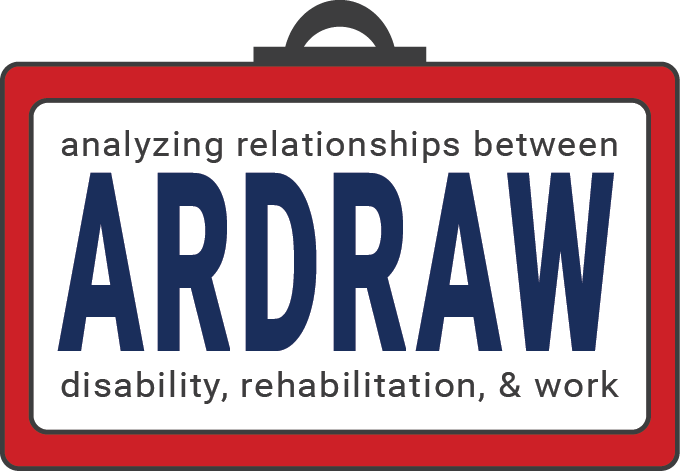The third, and largest cohort of student researchers in the Social Security Administration’s (SSA’s) Analyzing the Relationship between Disability, Rehabilitation, and Work (ARDRAW) Small Grant Program has been selected. SSA’s ARDRAW Small Grant Program is a 1-year $10,000 stipend program awarded to graduate-level students to conduct supervised independent research designed to foster new analysis of work, rehabilitation, and disability issues, which may develop innovative and fresh perspectives on disability. ARDRAW focuses on research relevant to SSA’s work incentives and employment supports – specifically rehabilitation, work, and the disability program.
Fourteen students have been selected to conduct independent research projects to assist Social Security policymakers in better understanding the relationship between disability, rehabilitation, and return to work. Seven of the awardees are current ARDRAW recipients who will continue their research began this year in Cohort 2. Teams of researchers from Policy Research, Inc. and SSA reviewed students’ proposals on a range of criteria, including relevance to SSA’s programs and policies, research methodology, and feasibility.
Projects cover a wide range of topics, including:
- Work with Parkinson’s disease and visual impairments
- The impact of enrollment in a work-study program on employment
- Transportation challenges
- Depression and anxiety during inpatient rehabilitation as a predictor of return to work for persons with spinal-cord injuries
- The impact of mentorship and work exposure on adults with an autism spectrum disorder
Students come from universities all over the United States, from Boston to Berkeley.
Cohort 3 Research Projects
- Depression and anxiety during acute, inpatient rehabilitation as possible predictors of an eventual return to work, post-spinal-cord-injury (SCI)
- Alternative work opportunities for adults who have degenerative conditions and implications for Social Security disability policy
- Working with Parkinson’s Disease: examining the effects of key influences, resources and supports on work-related decision-making and outcomes
- Non-standard employment: Health and financial implications for workers living with permanent partial disability
- Do early mentorship and work-exposure predict type of employment and longevity in the workforce for adults with Autism Spectrum Disorder eligible for Social Security benefits
- Making it work: Transitions from physically demanding employment in advanced age
- Why pay more? The effects of increased wage replacement benefits in workers’ compensation
- How does enrollment in a work-study program between 8th and 12th grade moderate the relationship between disability and employment?
- Understanding the transportation challenges for people with disabilities returning to work
- From high school to precarity in Chicago: How disability policies shape the experience of transition to early adulthood for low-income young adults with developmental and intellectual disabilities
- Comparisons of drug use, workplace drug policy, and utilization of drug rehabilitation services among construction workers and their non-construction work counterparts
- Extra costs of vision loss: Understanding the persistence of poverty amongst and through the words of disabled adults
- Workforce participation and healthcare access among working-age adults in the United States with chronic kidney disease
- Regional variation in Supplemental Security Income takeup among qualifying low birthweight infants
Learn more about the ARDRAW Small Grant Program and sign up for the ARDRAW email list to be notified of future research opportunities.


